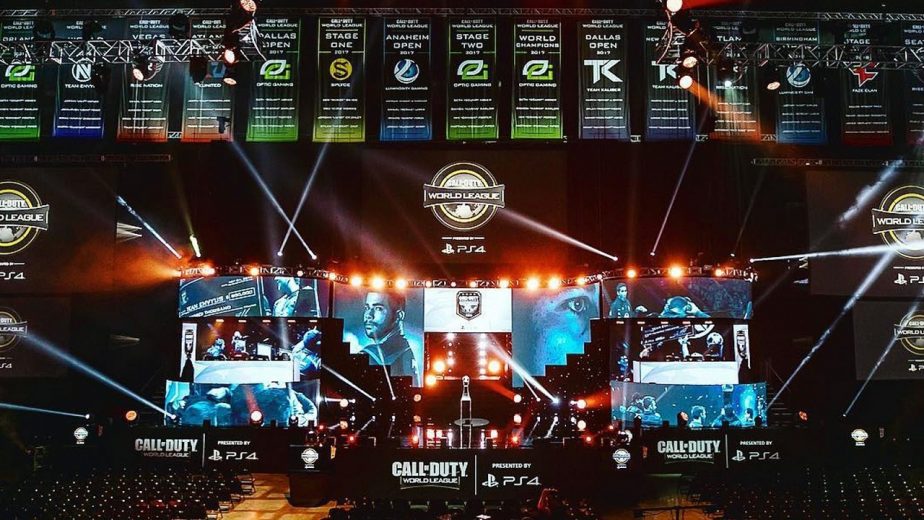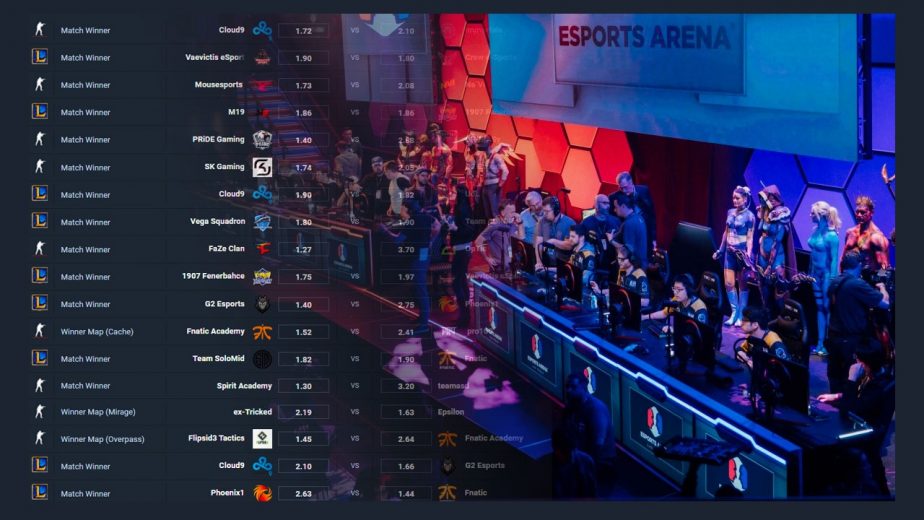Throughout the last few years, sports and esports betting has been slowly authorised across the United States. In mid-2018, the US Supreme Court struck down a law which had previously prohibited all forms of sports betting (including esports). However, this ruling didn’t automatically legalise the practice. Instead, each state government must pass their own bill specifically authorising it in their state. Thus far, 11 states have legalised sports betting. A further 7 have passed laws which simply haven’t come into effect yet.
Of the remaining states, 24 have legislation pending which would legalise sports betting in some form or another. However, even in states where laws have passed, sportsbooks may still face obstacles to offering esports betting. New Jersey is one such state where this is currently the case, although that may change in the near future. A new bill which was introduced this week by New Jersey Assemblyman Ralph Caputo would potentially lift restrictions on New Jersey esports betting if it passes into law. Furthermore, if the wording is adopted in future legislation elsewhere, it could have a big impact on the esports betting industry as a whole.

The New Jersey Esports Betting Bill
Caputo’s Bill A637, which currently doesn’t face any major opposition, is expected to pass into legislation sometime in 2021. What sets it apart from other state bills which authorise sports betting is the way in which it grants authorisation. Ordinarily, even if sports betting is legal in a state, sportsbooks may still need to get permission from their state’s DGE (Division of Gaming Enforcement) when it comes to esports. New Jersey esports betting currently has this exact issue. Last year, sportsbooks and casinos had to seek permission from the New Jersey DGE to offer bets for the League of Legends World Championship Final.
However, Bill A637 would remove this case-by-case restriction and grant permanent authorisation for sportsbooks and casinos to offer esports betting. “With online sports betting now legal in our state and a rapidly expanding esports industry already in existence,” said Caputo; “the time is right for New Jersey to expand legal wagering beyond traditional sports.”

While chairing a recent Tourism, Gaming and the Arts committee, Caputo explains why the bill should be adopted; “I would say esports are the ‘next big thing’ when it comes to sporting events,” he explained; “but the fact of the matter is that video game tournaments are already a prominent form of skill-based competition. Throughout the country and the world, video game enthusiasts are flocking to see expert players compete in all kinds of digital games. Whether they follow along online or in person, hundreds of millions of people watch esports each year – and that number is only growing.”
What the Impact Could be for New Jersey Esports Betting
Despite widespread growth and investment, online esports betting faces more obstacles to its operation than other online betting sites, like Playtech casino games, for example. However, Bill A637 has the potential to remove one of the biggest obstacles currently facing New Jersey esports betting. After all, sportsbooks will no longer need to go through the process of getting case-by-case permission from the DGE. That would provide more incentive for them to offer esports betting services for tournaments and events. Although the bill would grant permanent authorisation, it does nonetheless include a few reasonable restrictions. The biggest of these rules is the outright banning of any esports betting for competitions where the majority of competitors are under the age of 18.
Because of the relatively young average age of the gaming audience, there is concern about esports betting sites marketing to children. (Whether they do so advertently or not.) A report published by the University of Bristol last year, for example, found that 28% of the people interacting with esports betting tweets were under the age of 16. (Compared to just 5% for traditional betting tweets.) The report’s findings also show that betting sites advertising esports events on Twitter frequently breached advertising regulations; especially of a law banning anybody under the age of 25 from appearing in gambling adverts. Hopefully, Bill A637’s restriction will help to curb this problematic part of the industry.

The Potential for More Widespread Impact
If Bill A637 does indeed pass, then it is likely to mean significant growth for New Jersey esports betting. However, it could have an even greater impact if it goes on to serve as a model for bills elsewhere. (Something which esports betting industry representatives may well push for.) If it does, it could result in the lifting of current obstacles to industry growth across the US. Sports betting in general is certainly on the road to full legalisation in the majority of states. This bill could help to ensure that esports betting stays on that same road without being stymied by legislative wording.
Of course, the process of passing new legislation is hardly a quick one. As such, it will be some time before New Jersey’s legislature votes on A637 and passes it into law or not. However, the example may already begin to influence state lawmakers elsewhere, who may begin to introduce similar legislation during 2020.




